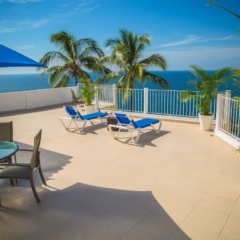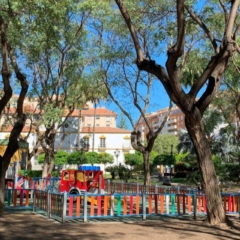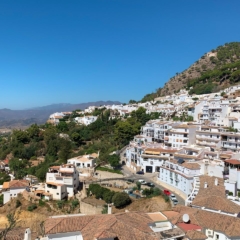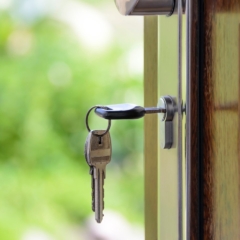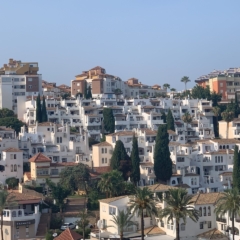The powerful neighbor’s communities in Spain
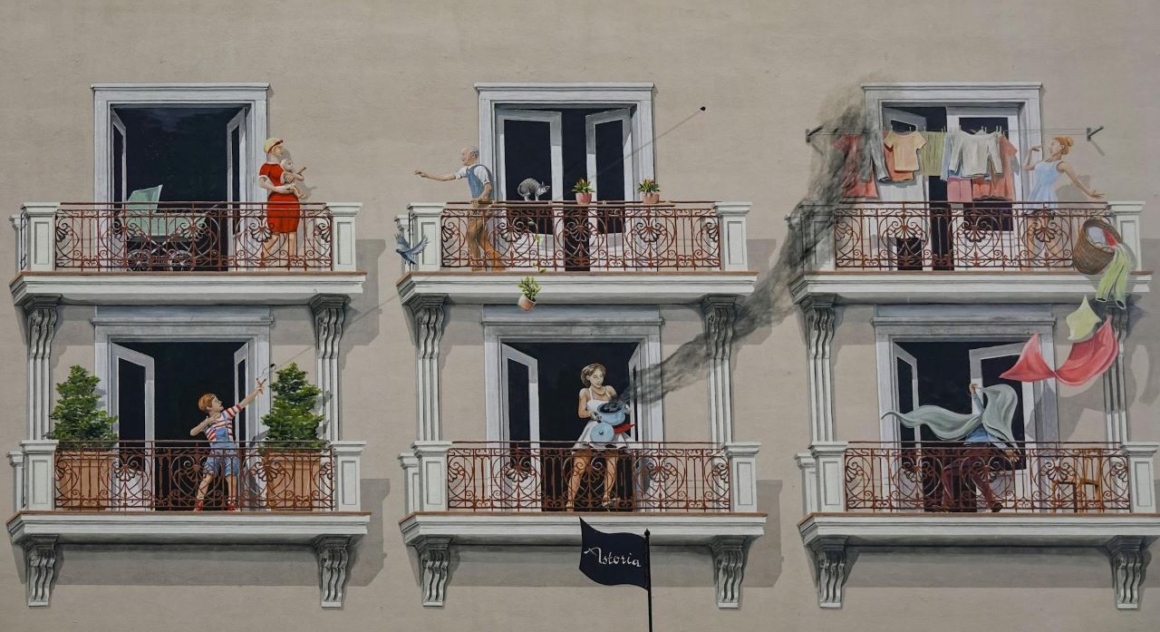
If you are thinking about buying real state in Spain, or if you have just bought, you have to read this one. The Comunidad de Vecinos (neighbor’s communities or property owner’s communities) are powerful entities that have a lot of saying about how one can use their own property. They are recognized by law and are quite powerful; knowing about them increases your chances of a happy life in Spain. So, let’s see the communities up close!
What are neighbor’s communities
A neighbor’s community is a group of property owners of a given area that collectively make decisions about how to manage their communal zones. They go a bit beyond that, though, and nowadays even have a say on whether one can operate an apartment as a vacation rental or not.
The community can include just one building or a group of buildings; it may also be a group of houses, if they all belong to the same complex, and can involve business properties too. Basically, only isolated residential houses are not part of a community – and still, some are; if there is shared access or a communal area, or pool, it’s likely that there is a community of owners behind it, dealing with communal issues.
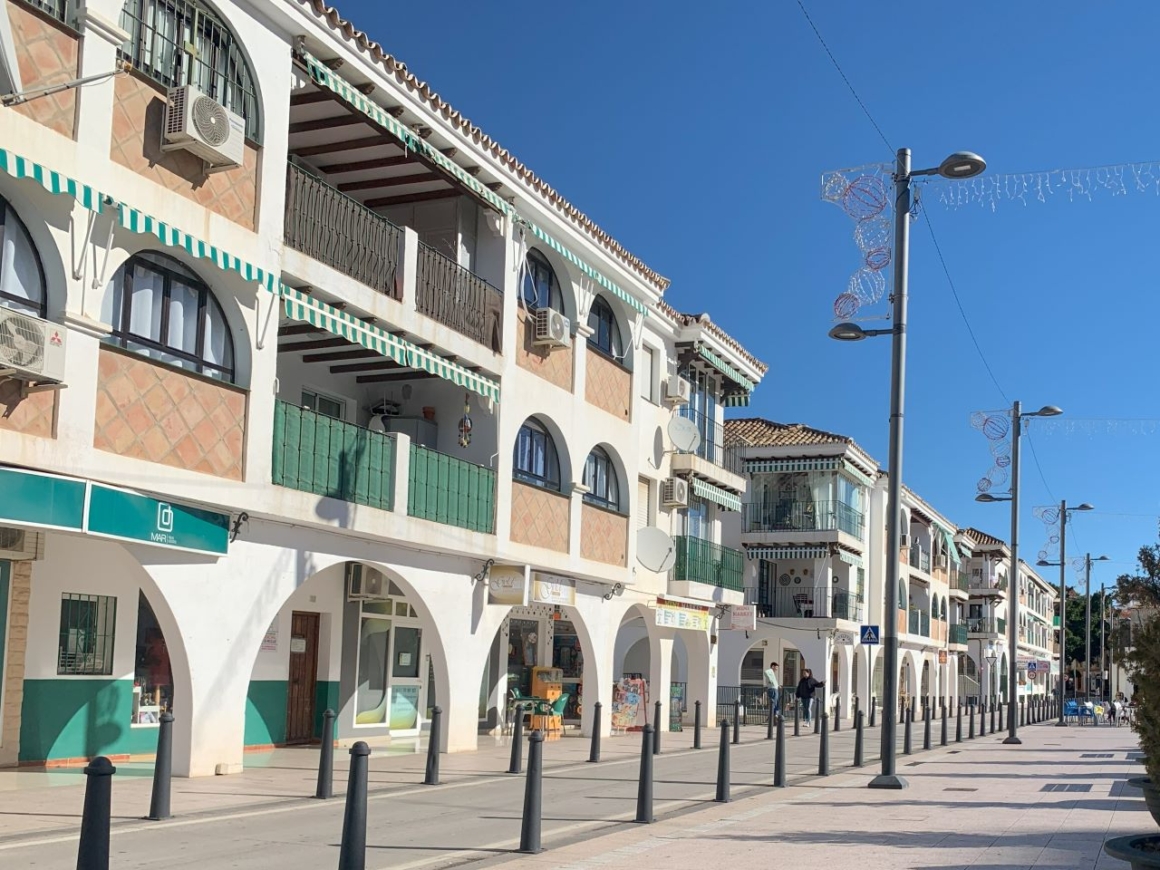
Renters are not part of the decision making of the community, only the owners – therefore, if you are renting a place, it is possible that you have not heard about community or ever been notified of a meeting or their decisions; your landlord, though, is probably well aware.
Owners of properties that belong to a community pay a monthly communal fee – the value, of course, varies from place to place, but if you are looking into buying a place you can (and should!) ask the real state agent or current owner how much the communal fee is before buying it. That is even more important if you are planning to buy a property as investment, as communal fees are paid by the owner of the place, not by the renters.
The communal fee is used to maintain, renovate or fix problems in the communal areas, as well as to pay for communal utilities. You can expect that the largest the communal area, the higher the fee will be. Communal equipment such as elevators, pools, playgrounds, gym, sauna, gardens, all add up to the price, as do garages, intercoms and gates, on top of cleaning, plumbing, power and garden maintenance, just to name a few.
The communities have presidents and representatives, who act as contact points for other members. This small group meets periodically and, at least once a year, there are meetings that involve the whole community, to discuss local problems and to make decisions about what should be prioritized, as well as to discuss the communal budget and eventually, an increase of the communal fee. Though the communities have the final word, it is not the community or their representatives who generally execute the decisions: that is the role of another important player – the property manager – that we will see next.
Communities & property management
If you walk around in the center of most cities in Spain, you’ll see many businesses boards for Administración de fincas (estate administration, property administration or property management). These private companies manage properties all around Spain. Their role includes dealing with groups of property owners (the neighbor’s community) and the common areas of their properties.
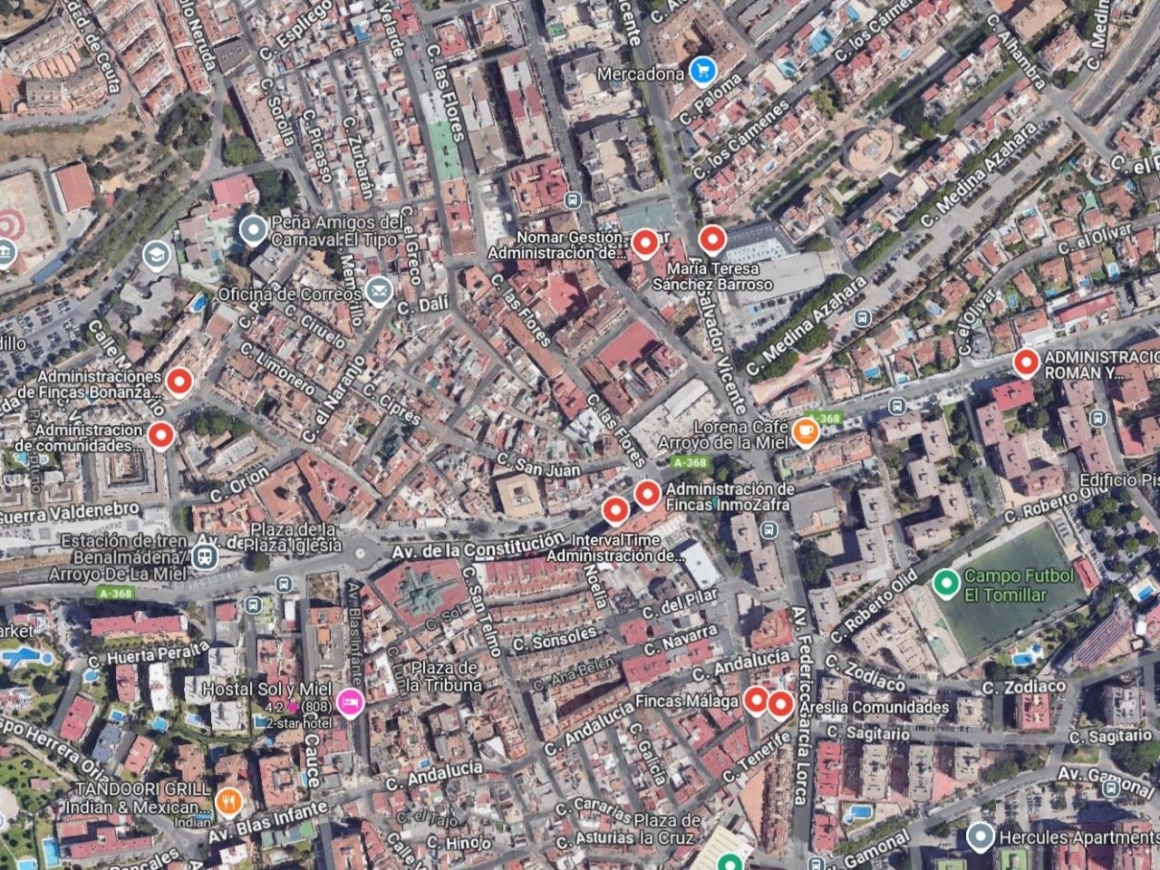
The property manager organizes and participates in the community meetings, preparing a list of topics that have been requested to be discussed and keeping track of what has been decided – and the order; these meetings can get heated! The manager then executes the decisions made by the neighbor’s community and also talks with the local government when needed.
When a member of the community notices a problem in the communal area of the property, they can contact either their representative, the president of the community or the property manager directly (as far as I know!) Depending on the problem, it will either be dealt with immediately (which in Spain can take some two months) or included in the next meeting, for general discussion.
For context, when I bought my apartment, I noticed a crack above one of the windows and notified the property manager. Two months later, they sent someone to repair – it didn’t need to be approved by the community, because it was a possible structural problem, and therefore urgent – though the manager and the president probably talked between themselves about this issue. Later, when I wanted to install solar panels – we’ll talk more about renovations on the next topic – my request was included in the topics of discussion for the following community meeting.

We (individuals) don’t choose the administrator when we buy the property. The community will most likely have already chosen one, unless it is a brand-new building – then, I suppose, someone has to take the initiative!
Communities & home renovations
In Spain, to do renovations in your own home, you need two permissions: one from the Ayuntamiento – which pretty much consists in paying a fee that supposedly compensate the neighbors for the disturbance (the neighbors don’t receive a penny, it is more like an indirect compensation) and one from the community where you live.
The ayuntamiento permission is usually dealt with by the renovating company themselves – the solar panel was our third renovation; the other two were installing a ceiling under our atico roof and changing the floors of the terrace. In each case, the company dealt with this permission, but it wouldn’t hurt to ask a renovation company if they would take care of this permission before contracting them.
The community permission, though, is needed whenever an exterior area of the building is affected, and solar panels installation, for instance, fits the description, even if they are installed on top of your property.
You don’t need community permission if you are, say, renovating your bathroom or painting the interior walls – though you do need the ayuntamiento permission (meaning, paying the ayuntamiento fee) every time. Balconies and terraces, though, are a bit of a gray zone when it comes to community permissions. It depends on whether you actually own the area, or if it is considered part of the communal zone to which you have right of exclusive access (I suspect my terrace is that second thing).
Check if the balcony / terrace is described in your property deed; this may affect your life a bit, because, say, if a balcony pipe gets clogged, it is up to you to fix it if the balcony is yours, but up to the community to fix it if the area is considered communal. Also, if it is yours, you don’t need community permission to renovate it (as long as the renovation doesn’t affect the facade), but you do need their permission if the area is communal. 😉
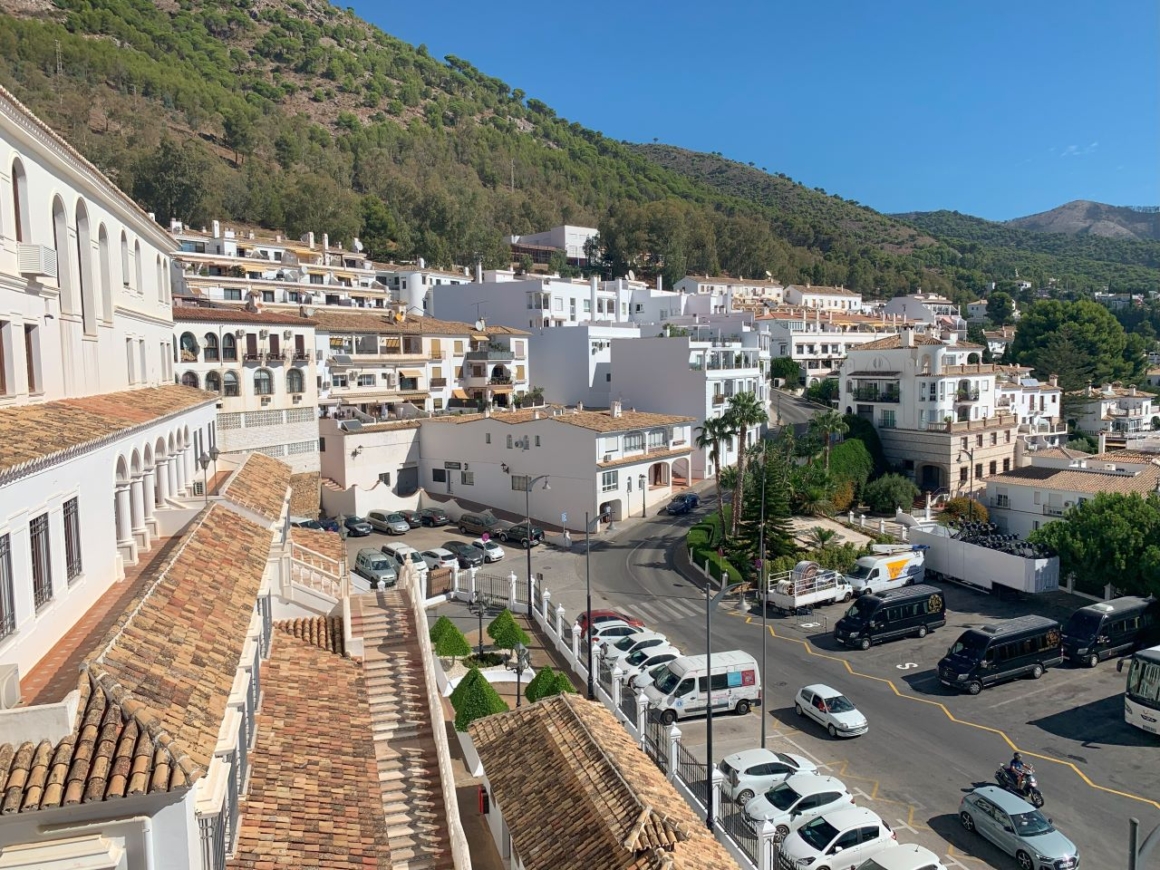
Communities & vacation rentals
This is a hot topic. When it comes to allowing or not vacation rentals within their premisses, communities’ power has been growing in Spain. Currently, if a community has in its regulations that it doesn’t allow vacation rentals, that’s it – no new vacation rentals can be placed, though the ones that have the ayuntamiento’s touristic license can still operate, for as long as the license is valid.
The horizontal property law, that deals with communal properties regulations, has been frequently updated, usually in the direction of limiting the number of vacation rentals. Its newest update happened in January and will be valid from April 03, 2025 onwards. Among the novelties:
- it acknowledges the power of communities to block new vacation rentals to operate on their premises (something that some communities already did, but it was of questionable legality);
- it allows communities to stipulate that new vacation rentals can only be accepted if approved by 60% of the community members;
- it allows vacation rental owners to be charged up to 20% more than the other owners in monthly communal fees;
- if someone operates a vacation rental without communal permission, the community can denounce the owner of that place, and fines can reach as high as 600.000 euros!
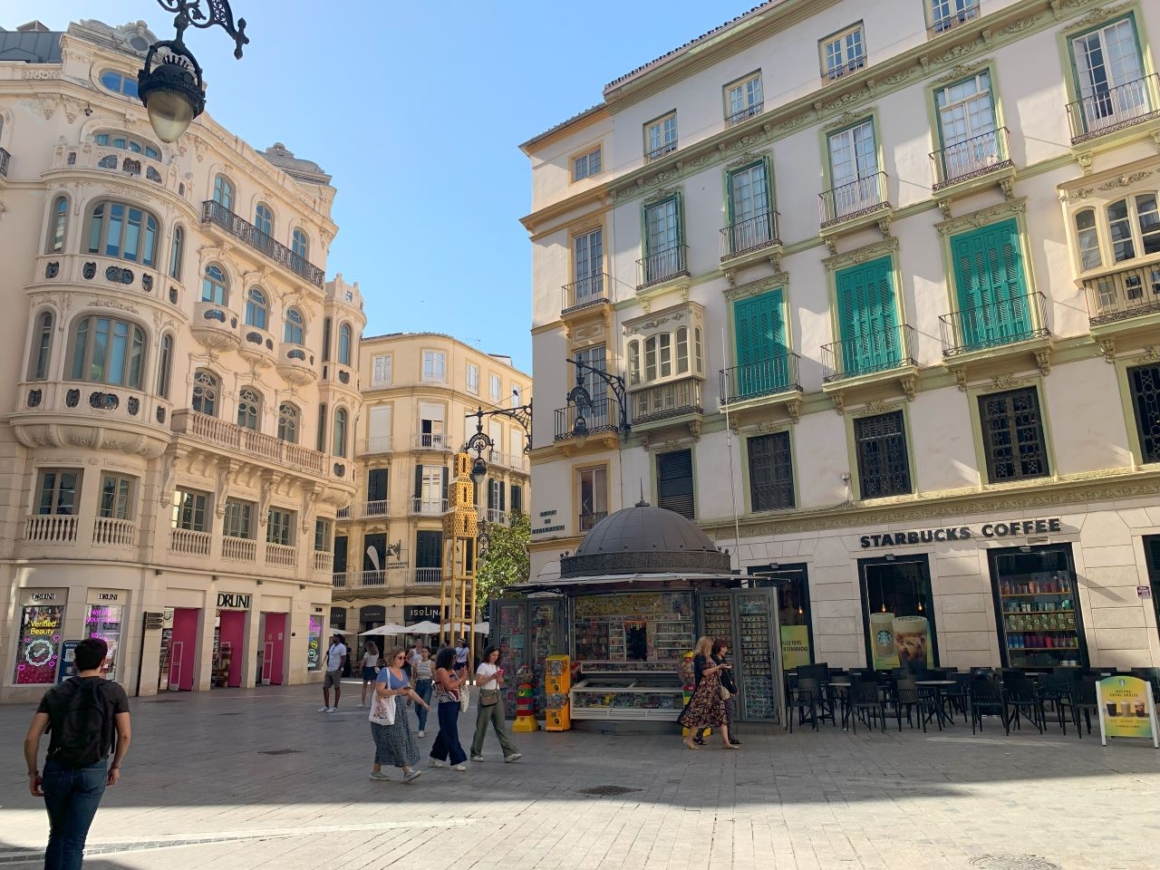
If you are planning of buying a property to rent for short term, pay special attention to the community rulings of the area. Some apartments already have a touristic license permit – so these are safe for business, as the communities cannot overrule the ayuntamiento’s permission… Well, at least for now, as the horizontal property law can, in the future, change that too; moreover, some localities are considering changing their permits from permanent to limited, and renewing would probably require a communal pre-approval.
If, on the other hand, you are like a friend of mine that swore she will never again live near a vacation rental, you may also want to know where the community stands on this matter.
Conclusion
Communities are very powerful entities in Spain. If you plan to buy a property in Spain, you may want to know how much the communal fee is when picking an apartment, particularly if you are buying a place with many communal amenities. If you are buying a fixer upper, you may come across the need for communal permits from time to time and depending on the use you’ll give to that property, you may want to know exactly what the community take is on vacation rentals.
That being said, communities are there to help and do, without a doubt, quite some good around the place. I’m very thankful that some of my neighbors dedicate their time to the improvement of our communal space. I wish you the best of luck on your search and a helpful community to belong to!

